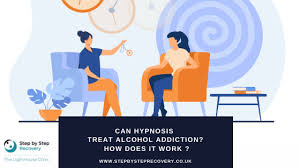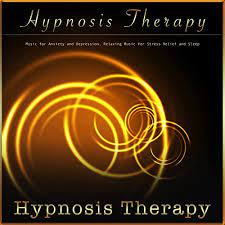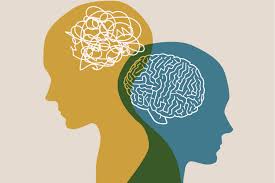The Power of Hypnotherapy in Treating Alcohol Addiction
Alcohol addiction is a serious issue that can have detrimental effects on both physical and mental health. Traditional treatment methods often focus on behavioral therapy, support groups, and medication. However, an alternative approach that has shown promising results is hypnotherapy.
Hypnotherapy is a therapeutic technique that utilizes hypnosis to create a state of focused attention and heightened suggestibility in individuals. In the context of alcohol addiction, hypnotherapy aims to access the subconscious mind to address underlying issues that may be contributing to the addictive behavior.
One of the key benefits of hypnotherapy for alcohol addiction is its ability to target the root causes of the addiction. By delving into the subconscious mind, hypnotherapy can help individuals uncover past traumas, negative thought patterns, or emotional triggers that drive their dependence on alcohol.
During a hypnotherapy session for alcohol addiction, a trained therapist will guide the individual into a relaxed state and use suggestion techniques to reframe their beliefs and behaviors surrounding alcohol. This process can help individuals develop healthier coping mechanisms, increase self-awareness, and build resilience against cravings.
Furthermore, hypnotherapy can also address co-occurring issues such as anxiety, depression, or trauma that may contribute to alcohol addiction. By treating the underlying psychological factors through hypnosis, individuals can experience holistic healing and long-lasting recovery.
It is important to note that while hypnotherapy can be an effective tool in treating alcohol addiction, it is often used as part of a comprehensive treatment plan that may include counseling, support groups, and medical intervention. Additionally, individual results may vary, and multiple sessions may be required to achieve significant changes.
In conclusion, hypnotherapy offers a unique approach to addressing alcohol addiction by targeting the subconscious mind and promoting positive behavioral changes. If you or someone you know is struggling with alcohol addiction, consider exploring the potential benefits of hypnotherapy as part of your recovery journey.
Exploring Hypnotherapy for Alcohol Addiction: Types of Partners Affected, Success Rates, and Comparative Treatments
- What are the 4 types of wives of alcoholics?
- What is the success rate of hypnotherapy for addiction?
- Is hypnosis good for alcoholism?
- What are five types of therapy that can be used to treat alcoholism?
- What is the most effective treatment for alcohol dependence?
What are the 4 types of wives of alcoholics?
When considering hypnotherapy for alcohol addiction, it is important to focus on the individual’s specific circumstances and needs rather than categorizing individuals based on stereotypes or generalizations such as the “4 types of wives of alcoholics.” Each person’s experience with alcohol addiction and their role within a relationship is unique, and a personalized approach to hypnotherapy can address the underlying issues effectively. It is essential to approach the treatment with empathy, understanding, and a non-judgmental attitude to support individuals in overcoming alcohol addiction and achieving lasting recovery.
What is the success rate of hypnotherapy for addiction?
The success rate of hypnotherapy for addiction, including alcohol addiction, can vary depending on individual factors such as the severity of the addiction, the willingness of the individual to engage in the therapy process, and the expertise of the hypnotherapist. While there is no definitive percentage that applies universally, many studies and anecdotal evidence suggest that hypnotherapy can be an effective tool in addressing addictive behaviors by targeting underlying psychological issues. It is important to approach hypnotherapy as part of a comprehensive treatment plan and to work closely with a qualified therapist to maximize its potential benefits in achieving long-term recovery from addiction.
Is hypnosis good for alcoholism?
Hypnotherapy has shown promising potential in addressing alcoholism by accessing the subconscious mind to target underlying triggers and behaviors associated with addiction. Through guided hypnosis sessions, individuals can work on reframing their beliefs, developing healthier coping mechanisms, and increasing self-awareness to combat alcoholism. While hypnotherapy is not a standalone solution for alcohol addiction and may vary in effectiveness for each individual, it can be a valuable complementary tool when integrated into a comprehensive treatment plan that includes counseling, support groups, and medical intervention.
What are five types of therapy that can be used to treat alcoholism?
There are various types of therapy that can be used to treat alcoholism, each offering unique approaches to support individuals in their recovery journey. Cognitive Behavioral Therapy (CBT) focuses on identifying and changing negative thought patterns and behaviors related to alcohol use. Motivational Interviewing (MI) helps individuals explore their ambivalence towards change and enhance their motivation to overcome alcohol addiction. Dialectical Behavior Therapy (DBT) teaches skills for managing emotions, improving interpersonal relationships, and coping with triggers that may lead to alcohol relapse. Family Therapy involves the individual’s family in the treatment process, addressing family dynamics and providing support for both the individual struggling with alcoholism and their loved ones. Lastly, Group Therapy offers a supportive environment where individuals can share experiences, receive feedback, and build connections with others facing similar challenges in overcoming alcohol addiction.
What is the most effective treatment for alcohol dependence?
When considering the most effective treatment for alcohol dependence, hypnotherapy emerges as a promising and innovative approach. Hypnotherapy for alcohol addiction involves accessing the subconscious mind to address underlying triggers and behavioral patterns that contribute to dependence. By targeting the root causes of addiction and promoting positive changes in thought processes and behaviors, hypnotherapy can offer individuals a holistic and personalized path towards recovery. This alternative treatment method complements traditional approaches such as counseling and support groups, providing a comprehensive strategy for combating alcohol dependence and promoting long-term sobriety.



